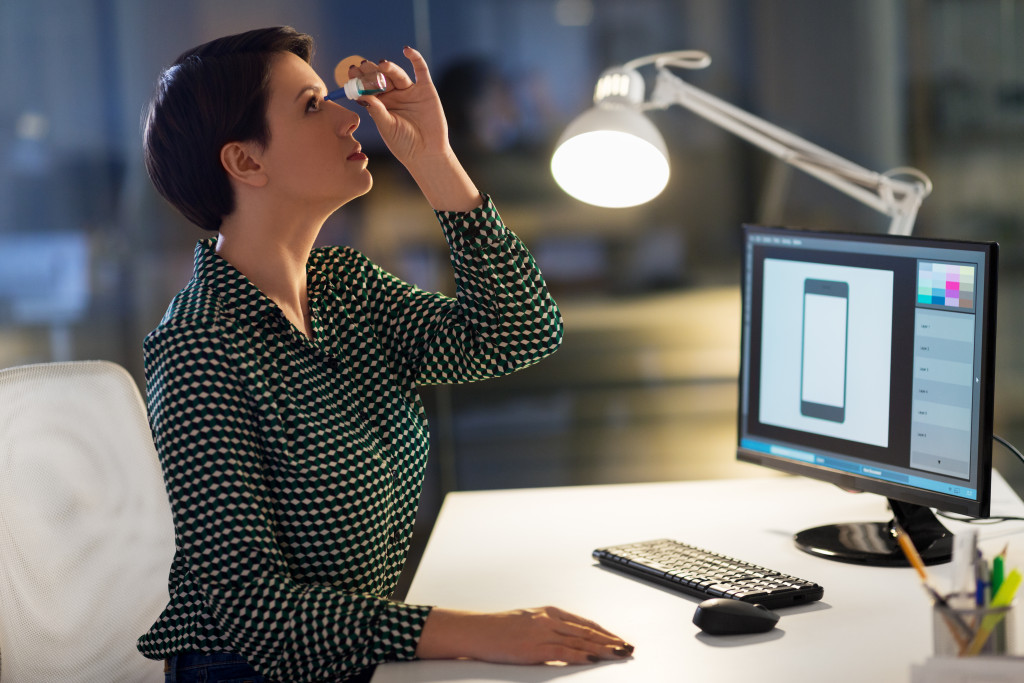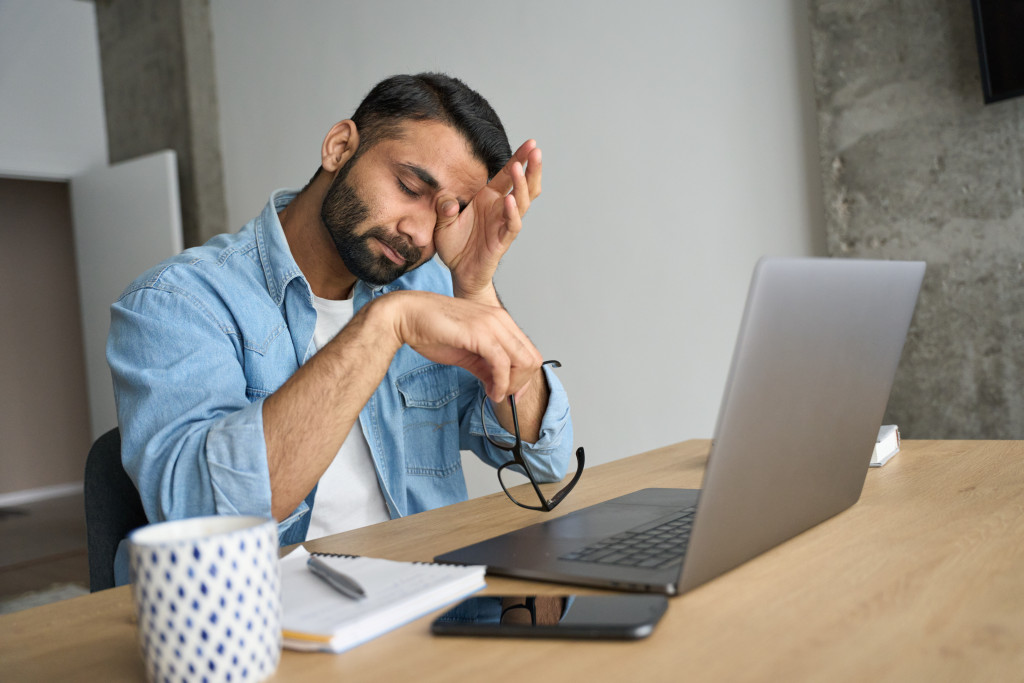Most people know the importance of taking care of their eyes. But what they may not know is that there are specific ways to take care of your eyes and maintain good vision. In this article, we will discuss some tips on how to take care of your eyes.
Common Eye Problems
Working at a computer all day can cause a number of eye problems. Eye fatigue is the most common, followed by eye strain, headaches, and dry eyes.
Eye Fatigue or Eye Strain
Eye fatigue or eye strain is a feeling of tiredness in the eyes. It can be caused by working at a computer for extended periods of time, reading for long periods of time, or looking at bright lights. It is also caused by the constant use of the eyes to focus on objects that are close up. Symptoms include blurred vision, difficulty focusing, eye irritation, and aching eyes.
There are a number of ways to reduce eye fatigue. One is to take a break every hour or so to rest your eyes. You can also try focusing on something at a distance for a few minutes every hour. You can also use eye drops or artificial tears to relieve eye irritation and dry eyes.
Dry Eyes
Dry eyes is another common problem among computer users. It is caused by the lack of moisture in the air and can lead to inflammation and infection. Symptoms include itchy eyes, red eyes, blurry vision, and sensitivity to light.
Taking Better Care of Your Eyes
Here are some tips on how to take good care of your eyes every day.
Wear Sunglasses
Sunglasses protect your eyes from the sun’s harmful ultraviolet (UV) rays. Too much exposure to UV rays can lead to cataracts, age-related macular degeneration, and other eye problems. Look for sunglasses that block out 99% or 100% of both UVA and UVB rays. Wear them every time you’re outdoors, even on cloudy days.
Eat Healthy Food
Eating a healthy diet can help protect your eyes. Foods rich in antioxidants, such as vitamins C and E, zinc, and lutein, may help prevent cataracts and age-related macular degeneration. Good sources of these nutrients include leafy green vegetables, such as spinach and kale; fish, such as salmon and tuna; eggs; nuts; and fruits, such as oranges and grapefruits.
Exercise Regularly
Exercise increases blood flow to all parts of your body—including your eyes. It also helps reduce stress and anxiety, which can lead to dry eye syndrome. A moderate amount of exercise is the key to maintaining good eye health. Thirty minutes of aerobic activity a day is a good goal for most people.

Use Over-the-counter Eyedrops
One way to reduce eye fatigue is to use over-the-counter eyedrops. Eye drops can help relieve eye irritation and dry eyes. They can also help you focus better and reduce the chances of getting a headache.
There are a number of different types of eyedrops available. Some are designed to relieve eye fatigue, such as Similasan Computer Eye Relief Eye Drops and Systane Ultra Preservative-Free, and TheraTears Dry Eye Therapy.
If you experience eye fatigue, it is a good idea to keep a bottle of eyedrops handy. That way, you can use them when needed to help reduce the symptoms.
Adjust Your Environment
There are a number of things you can do to make your place better for your eyes. One is to adjust the lighting. Try to avoid bright lights, which can cause eye fatigue. Instead, use lamps with soft light bulbs or desk lights with low-wattage bulbs. Another thing you can do is use a humidifier. Dry air can cause dry eyes. A humidifier adds moisture to the air and helps keep your eyes moist.
Visit an eye specialist regularly
It is important to have regular visits to an eye specialist or ophthalmologist because they can help diagnose and treat any problems you may have with your eyes. They can also provide you with advice on how to take care of your eyes and protect them from damage.
If you have any symptoms of eye fatigue, dry eyes, or other eye problems, it is a good idea to visit an eye specialist. They can help you get relief from your symptoms and may be able to recommend some treatments or changes to your environment that can help reduce your eye fatigue.
Regular visits to an eye specialist can also help catch any problems early and prevent them from getting worse. This is especially important for conditions like cataracts and age-related macular degeneration, which can lead to vision loss if not treated.
So if you want healthy eyes for years to come, it is important to have regular visits to an eye specialist.
Final Thoughts
Taking good care of your eyes is important for maintaining healthy vision. There are a number of things you can do to protect your eyes, including wearing sunglasses, eating a healthy diet, and exercising regularly. You can also use over-the-counter eyedrops to relieve eye fatigue and irritation. It is also important to visit an eye specialist regularly for checkups.

